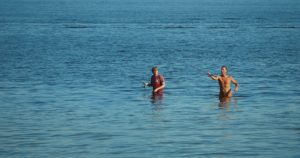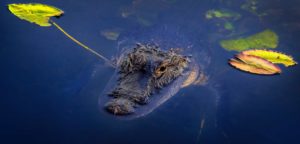Fish & Wildlife Violation Attorneys in St. Pete and Pinellas Park
Fish & Wildlife Violations in Florida
 Florida’s unique ecology is incredibly diverse, and that’s something Floridians can be proud of. That’s why careful management of our ecology is so vital to our state. However, it also means the wildlife is strongly protected by serious penalties for misconduct. Importantly, many offenses are based on the conduct rather than the offenders intent. This means you can be convicted for an action you took irrespective of whether you were trying to harm the protected wildlife.
Florida’s unique ecology is incredibly diverse, and that’s something Floridians can be proud of. That’s why careful management of our ecology is so vital to our state. However, it also means the wildlife is strongly protected by serious penalties for misconduct. Importantly, many offenses are based on the conduct rather than the offenders intent. This means you can be convicted for an action you took irrespective of whether you were trying to harm the protected wildlife.
Wildlife Violations in Florida can be serious charges and should never be taken lightly. Most attorneys don’t deal with wildlife or fishing violations everyday but we do! The legal team at Oldham & Delcamp has experience with representing clients facing wildlife violations, and we’re ready to defend you. Don’t hesitate to contact us if you need professional legal assistance.
What Are Florida Wildlife Violations?
Fish and Wildlife Violations come in many forms. From commercial saltwater fishing without a license, to littering, to failure to report marine turtle captures, the types of charges are as diverse as our beautiful environment.
Some wildlife violations are more commonly known, such as:
- Importing endangered species
- Poaching or trafficking off-limit species
- Harvesting coral and damaging reefs
- Polluting oceans, rivers, or nature preserves
However, some ordinary circumstances could lead to charges:
- Fishing with an expired or suspended license
- Taking undersized game fish
- Collecting rare species of butterflies for a hobby or school project
- Owning giant reptiles (like problematic Burmese pythons currently running afoul in the Everglades)
- Following manatees in a watercraft – known as manatee harassment
 As you can tell, many different charges fall under the umbrella of “wildlife violations.” Some are as simple as the failure to renew a license while others clearly prohibit more dangerous conduct. In either case, it is often best to seek the counsel of an experienced wildlife violations attorney to defend you and minimize the negative impact of facing these charges. These offenses can carry serious penalties, fines, and sometimes include the forfeiture of fishing and hunting privileges. In addition, some offenses can result in felony convictions and prison sentences. It is critical to understand the possible consequences before paying a fine or pleading guilty.
As you can tell, many different charges fall under the umbrella of “wildlife violations.” Some are as simple as the failure to renew a license while others clearly prohibit more dangerous conduct. In either case, it is often best to seek the counsel of an experienced wildlife violations attorney to defend you and minimize the negative impact of facing these charges. These offenses can carry serious penalties, fines, and sometimes include the forfeiture of fishing and hunting privileges. In addition, some offenses can result in felony convictions and prison sentences. It is critical to understand the possible consequences before paying a fine or pleading guilty.
Steps to Take Immediately After Being Arrested or Charged with a Wildlife Violation
Some fish and wildlife charges are minor, especially if this is your first arrest. Consider fishing without a license, for instance. If this is your first time, the penalty is a $50 fine and the purchase of a fishing license. Subsequent violations will cost you $50 more every time. Your second offense will cost you $100. Your third will cost $150, and so on.
More serious wildlife charges, like poaching or harassing our protected manatees, can lead to severe penalties. Currently, the conviction of this federal crime could cost you as much as $50,000 in fines and up to one year in prison.
If you’re facing arrest and charged with a serious wildlife violation:
- Exercise your right to remain silent. Don’t say anything other than your name and ask to speak to a lawyer.
- Remember, it’s important to behave reasonably when dealing with law enforcement. Don’t ever act belligerent or get physical with arresting officers
- Keep all of your paperwork and possible evidence together in a safe place.
- Don’t submit to searches without a warrant (be aware that some international wildlife crimes could fall under international law (CITES). Game wardens may not need a warrant if they suspect you’re harboring illegal ivory or tiger skins, for instance)
- Reach out to us for a consultation.
Do I Have a Good Wildlife Violations Case?
Since fish and game violations are so varied, the only way to learn what defenses are available is to speak with an attorney. Like many other types of crimes in Florida, sometimes a Prosecutor will accept a plea bargain or reduce the charges if you have a quality defense lawyer.
Some factors that determine the strength of your defense include:
- Whether you have ever been convicted of a crime, especially a wildlife violation
- Your willingness to participate in diversion programs, community service, and other rehabilitative options
- How much evidence the state has against you
- Your intent in engaging in behavior that constituted a violation
Having a good case often starts with having good counsel. These are just a few factors that will influence your case, there are many others to consider which an experienced wildlife violations lawyer can identify and use to your advantage.
How Long Do Florida Fish & Wildlife Cases Take to Settle?
The simplest situations, like the invalid fishing licenses discussed above, can be settled almost immediately when you pay the fine. More complex cases and serious charges can take much longer to resolve, ranging from a few months to a few years.
During this time, you should anticipate having to pay fines and court costs, complete community service or other rehabilitative programs. For many this will mean less disposable income, time off work and less time with your family and friends.
How Will Wildlife Violations Affect Me in the Future?
 Being convicted and even just charged with a wildlife violation can affect your employment and educational opportunities and make it hard to find housing. Convictions often come with loss of licensure whether professional or recreational such as hunting or fishing. Federal crimes and serious felonies can have lasting effects on other aspects of your life, like your ability to own guns or vote.
Being convicted and even just charged with a wildlife violation can affect your employment and educational opportunities and make it hard to find housing. Convictions often come with loss of licensure whether professional or recreational such as hunting or fishing. Federal crimes and serious felonies can have lasting effects on other aspects of your life, like your ability to own guns or vote.
It’s essential to get experienced counsel with Oldham & Delcamp to defend you against wildlife violation charges and reduce the negative impacts they can have on your life. We’re experienced trial attorneys. Your defense is our job, and we’re ready to help you today.
Avoiding Florida Fish & Wildlife Violations
If you have questions about hunting, fishing and ecology management, the Florida Fish and Wildlife Conservation Committee is a great place to start.
Our tips include:
- Always double check your hunting, fishing and boating licenses before heading out for a relaxing day outdoors. List expiration dates on a calendar or planner you frequently use to ensure you stay up-to-date.
- Respect Florida wildlife and admire it from a distance. Many violations are the result of getting too close to a protected or endangered species. Never follow, feed, or harass an animal you see.
- Measure your catch. Don’t rely on your eyesight to gauge whether a fish can be kept or should be released. When in doubt as to size or species, throw it back.
- Don’t mix alcohol or controlled substances with a day of hunting, exploring, or recreational fishing. Overindulgence often leads to poor decisions that constitute wildlife violations.
Conservation & Reporting to Avoid Wildlife Violations
If you need to report alligator kills, sick manatees, tagged fish, saltwater or freshwater fish kills, contact the Florida Fish and Wildlife Conservation Commission.

